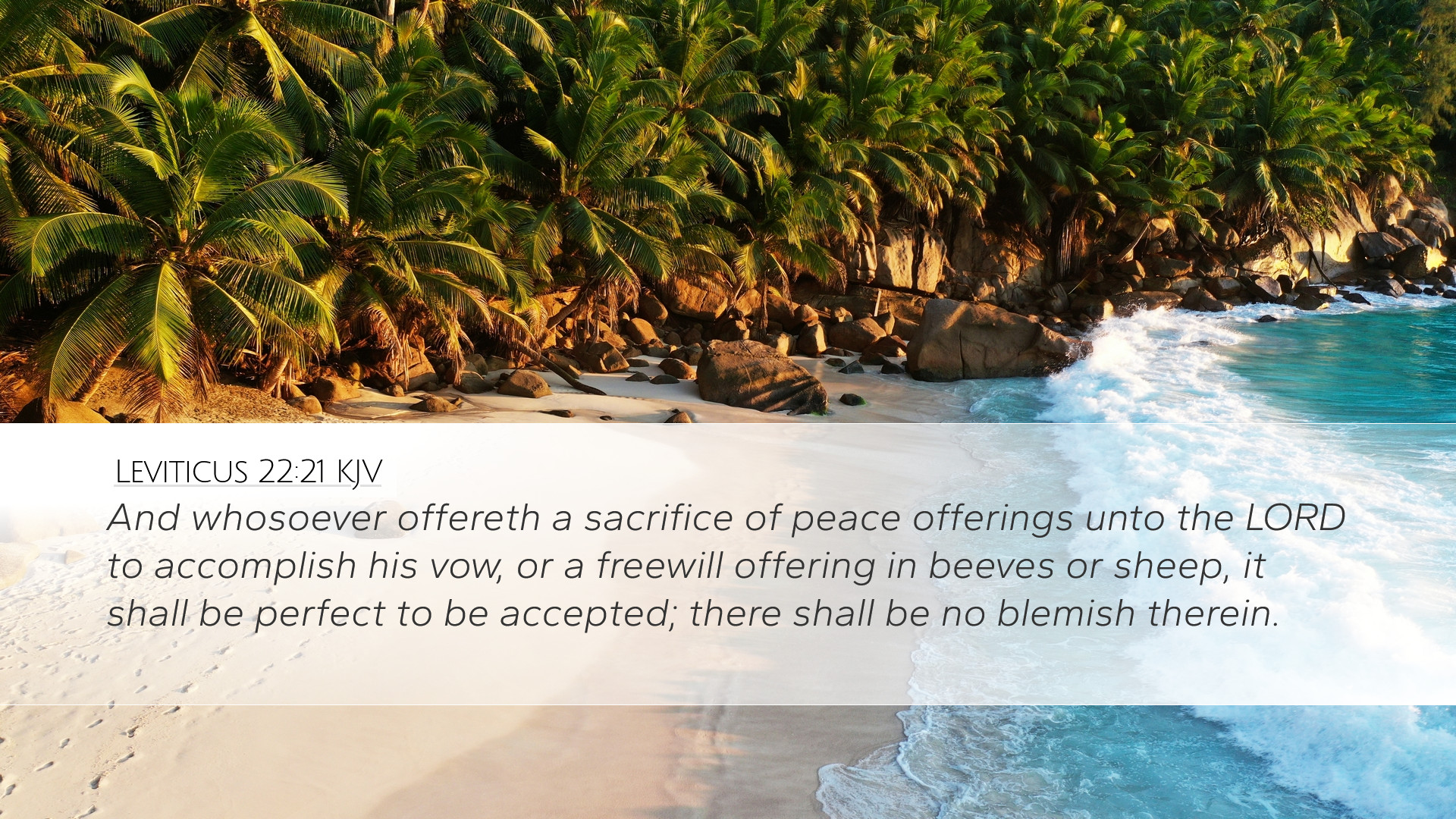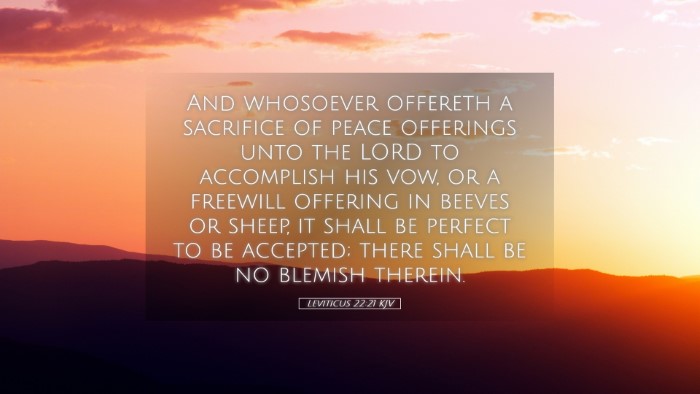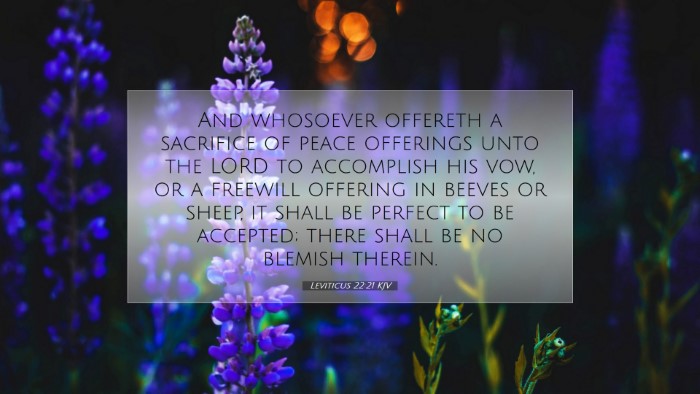Commentary on Leviticus 22:21
Verse Text: "And whosoever offers a sacrifice of peace offerings unto the Lord to accomplish his vow, or for a freewill offering, be it of oxen or sheep, it shall be perfect to be accepted; there shall be no blemish therein."
Introduction
The book of Leviticus, often considered a prescriptive manual for the Levitical priesthood and the Israelites' civil and ecclesiastical practices, emphasizes holiness and the significance of proper worship. Leviticus 22:21 calls attention to the attributes of the offerings presented to God and sets a standard for those who come before Him.
Contextual Background
Leviticus describes the various offerings that were central to the Israelite worship system, including sin offerings, guilt offerings, and peace offerings. The peace offering, in particular, was a voluntary act of worship wherein the offerer sought communion with God, often in gratitude or fulfillment of a vow. Understanding the sacrificial system's importance helps elucidate God’s holiness and the required standards for approaching Him.
Insights from Commentaries
Matthew Henry
Matthew Henry remarks on the necessity of perfection in offerings, highlighting that offerings brought to the Lord must be without blemish. He emphasizes that this serves as a metaphor for the spiritual condition of the worshipper. Just as physical blemishes render an animal unfit for sacrifice, so too do spiritual blemishes disqualify an individual from acceptable worship. Henry states, “God serves his own glory and the good of his people, in establishing a standard of holiness that His worshippers must adhere to.”
Albert Barnes
Albert Barnes elaborates on the significance of the peace offering, interpreting it as a gesture of thankfulness, an acknowledgment of God's providence. He notes that the phrase "that it may be accepted" underscores the fact that acceptable worship must meet divine standards. Barnes states, "The essence of acceptance rests not merely in the intention but in adhering to the specifications set forth by God.” He further elucidates that the emphasis on the absence of blemish symbolically affirms the need for a heart purged of sin when approaching the holy God.
Adam Clarke
Adam Clarke focuses on the types of offerings and notes specifically that the peace offering is meant to facilitate communion between God and the worshipper. Clarke comments on the terms "vow" and "freewill offering," pointing out that both indicate a voluntary aspect of sacrifice. He stresses that the worship must be genuine, asserting that "the intent behind the offering is of utmost importance; one must not only give but give with a heart aligned with God's will.” Clarke also distinguishes that while the peace offering can denote fellowship, it must come from an individual who has sought a pure standing before God to truly worship Him.
Spiritual Implications
The implications of Leviticus 22:21 stretch beyond mere ritualistic compliance to encompass a theology of worship that emphasizes the character of both God and the worshipper. Acceptable worship, as clarified in this verse, involves a comprehensive engagement of one's inner self alongside the external act of offering.
The Call for Holiness
Implicit in the covenant relationship between God and His people is a call to holiness. This verse serves as a reminder that worship in any form must be approached with reverence and purity, reflecting the nature of the God we serve. The expectation of unblemished offerings was a precursor to the ultimate sacrifice of Christ, positioning Him as the perfect offering who met every standard of holiness and acceptability before God.
Evaluating Our Offerings
For modern believers, this passage invites introspection regarding one's own offerings—whether they be time, service, or financial. Are these offerings made with the correct heart posture? Do they reflect a life without spiritual blemish? This text challenges believers, encouraging them to take stock of what they bring to God, aligning their offerings with divine standards.
Conclusion
Leviticus 22:21 stands as a critical text for understanding the nature of acceptable worship. It teaches about the intersection of divine holiness and human earnestness in offering, providing essential teaching for pastors, students, and theologians alike. As we reflect upon our own contributions towards God, may we aspire to present ourselves and our offerings as perfect and unblemished before Him, drawing closer to His holiness.


